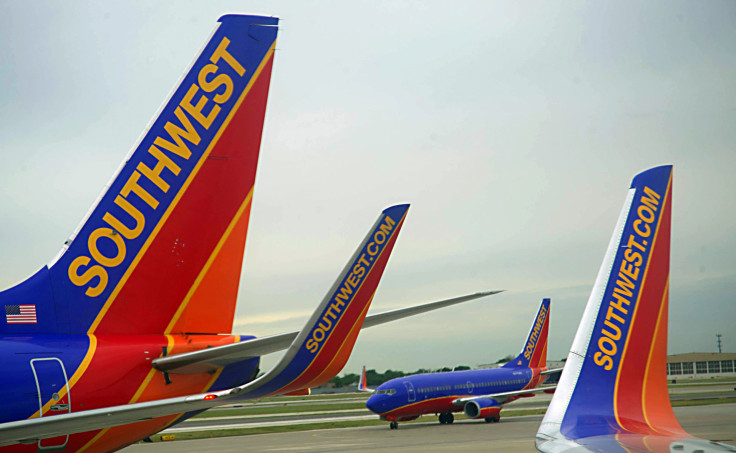Southwest Airlines Maintenance Snafu Raises Safety Concerns

Southwest Airlines voluntarily grounded about one-fifth of its fleet on Tuesday, raising concerns about operational safety procedures at the world's fourth-largest airline by passengers carried. The move to temporarily ground the planes occurred when Southwest discovered that a required maintenance check on 128 of its Boeing 737-700s’ standby hydraulic systems had been missed. After Southwest notified the Federal Aviation Authority of the issue, the FAA ruled late Tuesday to allow the airline to continue operating affected aircraft for up to five days until the checks are completed.
Approximately 80 Southwest flights were canceled on Tuesday while the airline awaited the FAA’s response. With most planes back in service Wednesday, Southwest told the Associated Press it expected only 19 flights to be canceled due to the maintenance issue on Wednesday.
“Southwest immediately and voluntarily removed the affected aircraft from service, initiated maintenance checks, disclosed the matter to the FAA, and developed an action plan to complete all overdue checks,” the airline said in a statement emailed to International Business Times. “The safety of customers and employees is Southwest's highest priority and the airline is working quickly to resolve the situation.”
The overdue inspections involved the hydraulic systems that control the plane's rudder if the main system fails. "This is a periodic inspection of a backup system,” the FAA said in a statement. “The FAA evaluated the risk and agreed that the airline could continue to operate the planes during the short interim.”
But this isn’t the first time Southwest has had an issue with the FAA about compliance with maintenance regulations. Last year, the FAA initiated a $12 million civil penalty against the airline for failing to comply with federal regulations regarding repairs. According to a lawsuit brought by the Justice Department in November, Southwest Airlines conducted improper repairs on some of its planes and continued flying them after being told by the FAA that the aircraft were not airworthy.
“They say the best indication of a safety culture is when a company does the right thing when no one else is looking. Southwest failed in this regard. On the other hand they did self-report their violation,” aviation safety specialist Christine Negroni said in an email. “Too much attention is paid by the public to fatal accidents. The true indicator of whether an airline is safe is not the highly unusual fatal airplane accident, but rather how it handles everyday maintenance and operations. With that criteria, clearly Southwest has some remedial work to do.”
The failure, many experts agreed, likely has to do with the way the airline maintains its records and alerts systems. “If I was the CEO of Southwest, I would have been with my head of maintenance Tuesday night to look at whether they are equipped with the right software systems, the right procedures and the right leadership,” said airline industry analyst Henry Harteveldt. Southwest Airlines has not been known to be on the cutting edge of technology when it comes to its consumer operations, and it’s possible that lack of forward thinking has affected the airline’s operational procedures, as well.
Still, most experts were quick to point out Southwest’s excellent safety record thus far; the airline, which operates only Boeing 737s, has had no fatalities in the air in its 44-year history. Its only death occurred in 2005, when an aircraft skidded off the runway upon landing at Chicago’s Midway Airport, colliding with a car on the ground and killing one person inside the vehicle.
“This issue notwithstanding, Southwest has been very aggressive about safety. It’s an excellent airline with a fantastic record,” said Goeffrey Thomas, editor-in-chief of AirlineRatings.com. “Certainly some inspections have been missed, but that’s not peculiar to Southwest. Other airlines do miss inspections, and in most cases it’s a technicality. There’s no danger to the flying public. I do expect Southwest will have a good look at its maintenance and oversight to make sure it doesn’t happen again.”
Brent Bowen, dean of the College of Aviation at Embry-Riddle Aeronautical University and co-creator of the national Airline Quality Rating, said it’s positive that the airline brought the misstep to the FAA’s attention on its own. “It gives me confidence that they’re willing to bring it to forefront,” said Bowen, who plans to fly Southwest on Sunday. He added that the airline’s previous issues with the FAA were related to inadequate record keeping.
Because the FAA did not require Southwest to take the affected planes out of service, Harteveldt and others don’t believe the missed inspections posed a real threat to the flying public. “If the FAA felt that this issue was serious enough, they would have told Southwest to keep the planes grounded,” said Harteveldt. “And in this case it was the back-up systems that weren’t inspected. That doesn’t mean the systems themselves were not working.”
That said, Southwest Airlines will likely have to work to reassure its passengers that it takes safety and airline maintenance seriously.
“It is extremely embarrassing for Southwest to have missed these inspections,” said Thomas. “There has to be some accountability.”
© Copyright IBTimes 2024. All rights reserved.











